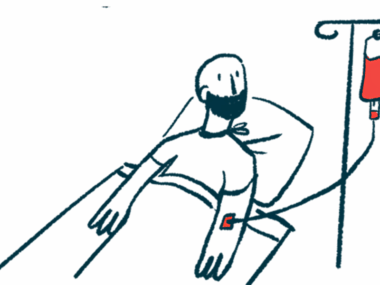My twin with MG doesn’t want people to pity him
What my brother wishes others — including me — understood about MG
Written by |

Author Jane Austen once wrote, “Those who do not complain are never pitied.” I was a mediocre English major in college. I won’t tell you I adored “Pride and Prejudice,” but I’ve always remembered that gut-wrenching line.
To pity someone is to feel sorrow, compassion, and sadness due to their circumstances. No one wants to be seen that way. However, just because someone isn’t complaining doesn’t mean they’re not enduring an unwieldy emotional burden.
I’ve been having frank conversations with my twin brother, Aaron, about his myasthenia gravis (MG). I admitted that I once felt sorry for him and his life circumstances. He said he already knew that, and it was OK.
I recently asked him what he wants people to know about living with MG, and he said there are two aspects that for him are intolerable. For one thing, most people don’t know the disease exists. When he bothers to tell people about MG, he can’t stand to see pity on their faces.
Additionally, he hates being stared at and judged due to visible MG symptoms, such as crossed eyes or limb weakness, especially in his hands. He recently had strabismus surgery to correct the severe misalignment of his eyes and double vision, and is currently recovering.
Aaron said he can’t control what others do, but he can stay optimistic and never validate their pity.
My brother’s feelings about judgment and pity
Aaron was diagnosed with MG in 1999 when we were both 24. He’s been going to the doctor regularly, taking medication, and taking care of himself ever since.
In those early days, he was angry about his condition, which would augment his symptoms. Days and weeks went by when he could barely use his hands. It was quite a shock to me and my relatives when his eyes became severely misaligned for several months each year.
During our recent discussions, it’s been hard to hear him say things that have gone unspoken for so long, such as how he feels about being pitied.
I recognized my fault in telling Aaron a while back that at least his MG flare-ups and eye misalignment were severe only a few months of the year. At that time, I didn’t know about the horrible double vision and headaches he’d been dealing with. I also didn’t consider that he dreaded receiving looks of pity and judgment whenever his eyes became noticeably misaligned.
In addition, I admitted how hard it must’ve been when relatives, including me, felt sorry for him after his diagnosis. I never felt that way out of contempt, but rather out of concern. It hurt to see what MG did to him and took from him when he was only 24.
Still, feeling sorrowful judgment for someone is a useless endeavor. It usually implies the superiority of the one offering it, wittingly or not. It can be an involuntary emotion, a reaction that needs to be recognized for what it is.
Aaron told me he’d rather be disliked than pitied, as pity makes him feel unseen. I’m shocked and ashamed that I’m learning things about him that have gone unsaid for decades. He’s had MG for 25 years, and I’ve never heard him talk about pity like this. Also, I never asked.
I spent so long trying not to feel sorry for him or see him as disabled that I didn’t see the struggles he was silently dealing with. Aaron is a private man, but we’ve agreed to have a more open dialogue about how MG affects him and me. That way, there will no longer be any assumptions or misunderstandings. Never complaining doesn’t always mean everything is all right.
Note: Myasthenia Gravis News is strictly a news and information website about the disease. It does not provide medical advice, diagnosis, or treatment. This content is not intended to be a substitute for professional medical advice, diagnosis, or treatment. Always seek the advice of your physician or other qualified health provider with any questions you may have regarding a medical condition. Never disregard professional medical advice or delay in seeking it because of something you have read on this website. The opinions expressed in this column are not those of Myasthenia Gravis News or its parent company, Bionews, and are intended to spark discussion about issues pertaining to myasthenia gravis.







Leave a comment
Fill in the required fields to post. Your email address will not be published.